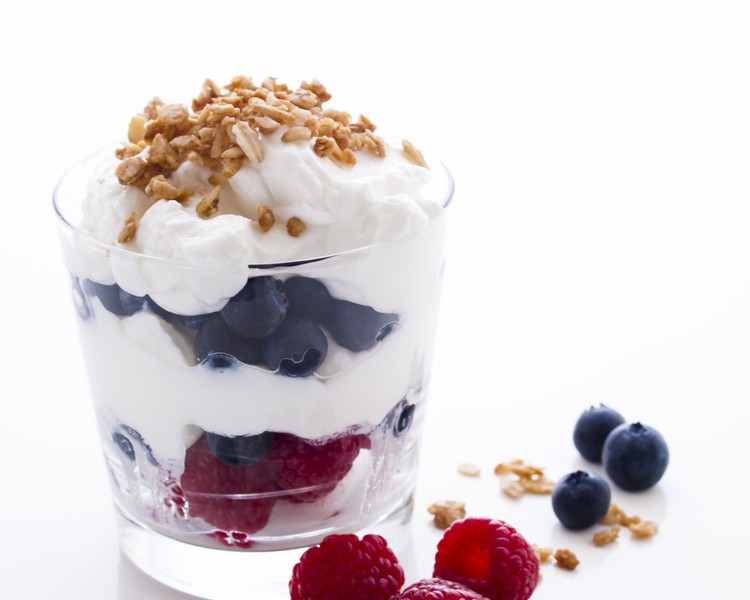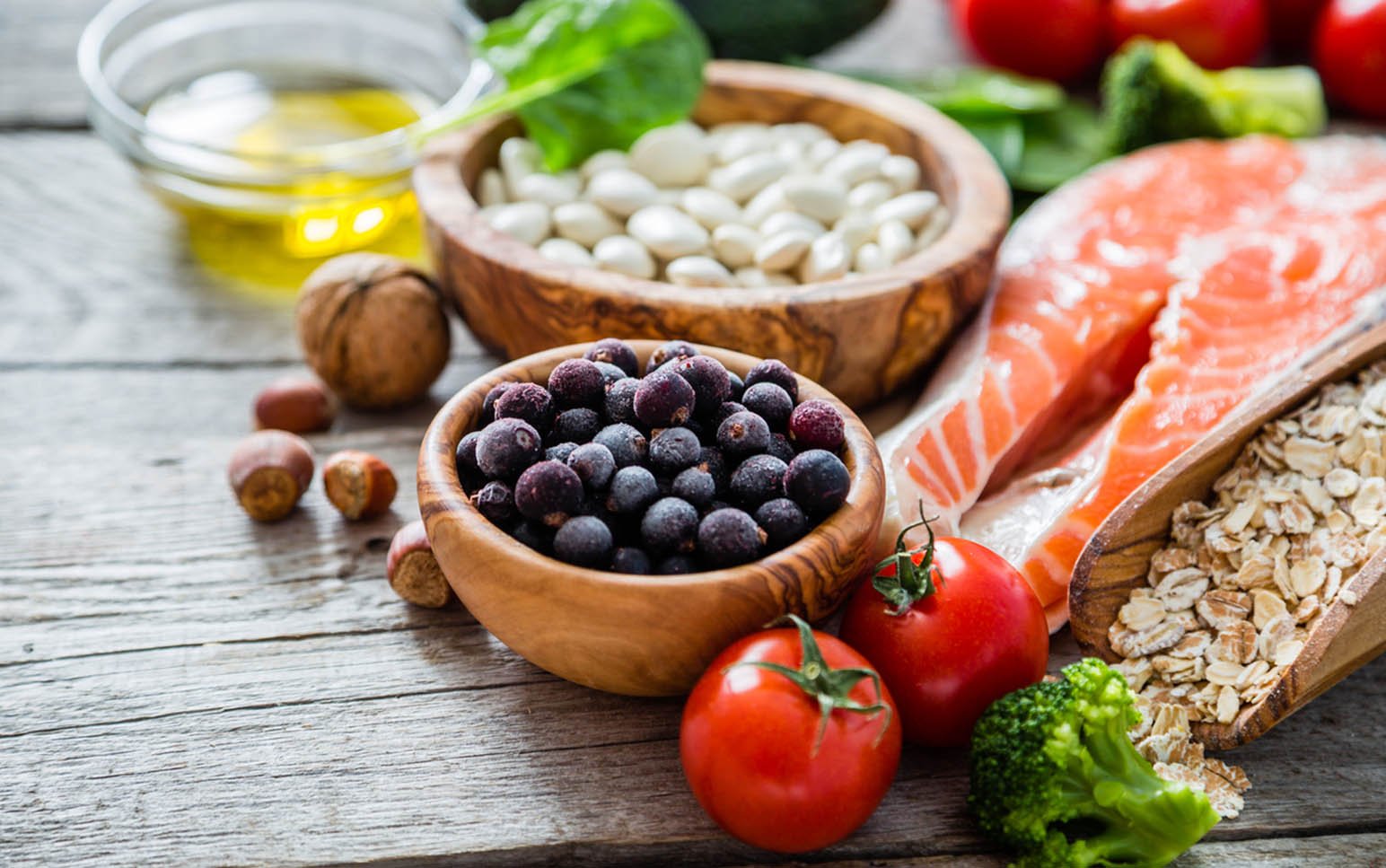
Foods That Don’t Deserve Their Reputation: What to Cut and What to Keep
Nutrition is the hardest part of fitness. You know it’s true. There’s food prep, calorie counting, endless formulas promising to predict your perfect macros, and a never-ending need for self-restraint. Even if you love to cook, the process of perfectly-on-point nutrition can get tedious.
If only you could zap a couple decades into the future when your smartwatch will monitor your blood glucose and metabolic rate in real-time, and alert you to when you need to eat based on your next scheduled workout and current vitals. The technology is coming along, but in the meantime, you still have to make some careful calculations (and informed guesses) about what your body needs.
It’s certainly not easier with the endless stream of diet trends, nutritional supplements, and trainers trying to sell you their lifestyle packages. Discerning the real science from the cherry-picked, profit-motivated generalizations is exhausting. No one has time to read the latest medical journal, clip coupons, and prepare a week’s worth of rice and broccoli.

To save you time and energy, we’ve pulled together the top offenders of “mislabeled” foods. Those snacks you thought were healthy might be creating the layer of fat still covering your six-pack, and those foods you’ve religiously avoided might not be as bad as you think.
The Pantry Purge: “Health” Foods to Skip
Let’s start with the foods that conventional knowledge says are okay, or even healthy. If you look back over the last 50 years, it was often profitable for these foods to be marketed as a diet food, or to be considered healthy when laid alongside the other, sugar-laden food being introduced into grocery stores. Here are the top offenders:
- Yogurt gets touted as a great breakfast food. In truth, plain, low-fat greek yogurt isn’t that bad for you, but most of what’s available is highly sweetened yogurt with some kind of fruit — either chunks throughout or resting on the bottom. The flavoring used adds a lot of sugar, and anytime there’s fruit at the bottom of that cup, it’s more like eating jam by the spoonful.
- Juice is a wonderful, sugary way to get some empty calories. Most juices fall into the same trap yogurt does — because it’s fruit adjacent, and there might be a tiny bit of real fruit in it, it must be healthy. In truth, juice is all the sugary parts of fruit without any of the helpful fiber or carbohydrates. If you want to fast or cleanse, skip the juice and look for bone broth.
- Granola hangs around because of it’s crunchy, hippy, health-conscious vibe. In reality, granola was developed as a high calorie, lightweight snack that could be carried by backpackers and hikers. Modern versions of the snack are flavored with sweeteners and the nutrition profile more closely resembles a dessert than a fibrous meal additive.
- As an honorable mention, beware anything trendy. This can be hard to pin down, but if something is suddenly wildly popular, touted as a superfood, or related to a diet, it’s probably because someone is making money off it. In the last several years, chia seeds, cauliflower pizza, and acai berries have all made the rounds. Each of these foods are good in moderation, but they aren’t superfoods or magic bullets.
It might seem like breakfast and mid-morning snacks are an easy target, but when compared to lunch and dinner, you’re more likely to have holes in your breakfast nutrition. While most things are better than pop tarts and sugary cereal, there’s more to creating a balanced, nutrient-dense breakfast than passing on the processed foods. If you’re at a loss for what to eat, try egg bakes, omelets, breakfast wraps, or plain yogurt with fresh fruit.
Foods That Don’t Deserve Their Bad Reputation
Just as there are sugary foods masquerading as the key to health, there are foods that have been shamed into oblivion. When you dig into it, though, they’re really not that bad. As with everything, moderation is key, but it might be time to reconsider adding these foods back into your meal plan.
- Bread suffered from the Atkins diet, and it’s still suffering, in part because the fluffy white bread you can buy at the store has little nutritional value. If you’re a sandwich lover or just miss toast, look for sprouted bread. It has fewer carbs and a lower glycemic index, so you won’t get a blood sugar spike. Plus, when the grains are sprouted before being milled, you get an additional 4 grams of protein over 12 grain bread, extra fiber, and less gluten.
- Egg yolks suffered their downfall when the medical industry became worried about cholesterol and its link to heart disease. The yolk of the egg contains dietary cholesterol, so many people opted for egg whites or to skip eggs altogether. Recent evidence contradicts that stance, noting that high cholesterol is influenced by saturated fat more than dietary cholesterol. While the recommendation is to no more than one egg per day, that may vary based on activity and fitness level.
- Cacao is an indulgent way to introduce micronutrients into your foods. The unsweetened chocolate powder (not be confused with cocoa) contains anti-inflammatory compounds and antioxidants, helping to reduce stress throughout the body and decrease the risk of cardiovascular disease. It also boosts your mood and your immune system, so next time you’re feeling blue or craving something sweet, don’t be afraid to blend some cacao into your smoothie, or reach for some dark chocolate.
- This time, the honorable mention goes to spicy foods. Crazy-hot hot sauces and wing challenges have made spice tolerance a challenge. It’s generally assumed that spicy food can cause upset stomach, heartburn, and other digestive issues. Extreme heat may leave you feeling uncomfortable, but moderate spice claims a number of health benefits. Turning up the heat provides anti-inflammatory nutrients, an improved immune system, less bacteria, and added longevity. Not to mention, the heat can actually rev up your metabolism. If you’re closely watching your calories during a cut, it may not help much, but it could push you over that plateau. There’s certainly no harm in trying; just make sure to keep your scoville units to a tolerable level, and focus on ginger, tumeric, and chile peppers for the greatest benefits.
If you’re switching up breakfast to avoid sugary yogurt, try a couple of whole eggs or some avocado toast. Cacao powder can be blended into a protein smoothie for added richness with little caloric impact. Spicy foods might be the easiest of all — buy some bulk ground spices and sprinkle them on just about anything.
A little heat can brighten up the other flavors in a dish without adding calories or relying on rich sauces. Just make sure to buy in bulk to keep the cost down; buying spices by the jar gets expensive quickly.

Updating Your Meal Plans
It might feel like more work than it’s worth to incorporate new foods when you’ve already got a strong system going. Instead of trying to upend your current routine, look for places to make simple swaps or add some new foods here and there.
Long story short, most naturally occurring foods aren’t going to do you in, just eat them in moderation. Bread is definitely processed, but opting for a sprouted grain will bring you more benefits than abstaining entirely.
Enjoy what you like to eat, just watch your macros closely and pay attention to what your body performs best on (hint: most bodies like variety). Make some sprouted bread toast to sop up your egg yolk, or find some cayenne chocolate to finish your meal with. Your mind and your body will thank you.
For more news and updates, follow Generation Iron on Facebook, Twitter, and Instagram.
Alyssa is a lover of words and movement who happily resides in the Pacific Northwest. If she’s not at the gym or out playing pick-up games, she’s probably feeding her favorite humans something stealthily healthy or devouring her latest bookstore find. She’s passionate about making health and fitness accessible to anyone, regardless of their situation. Tweet her @arobinsonwrites.
